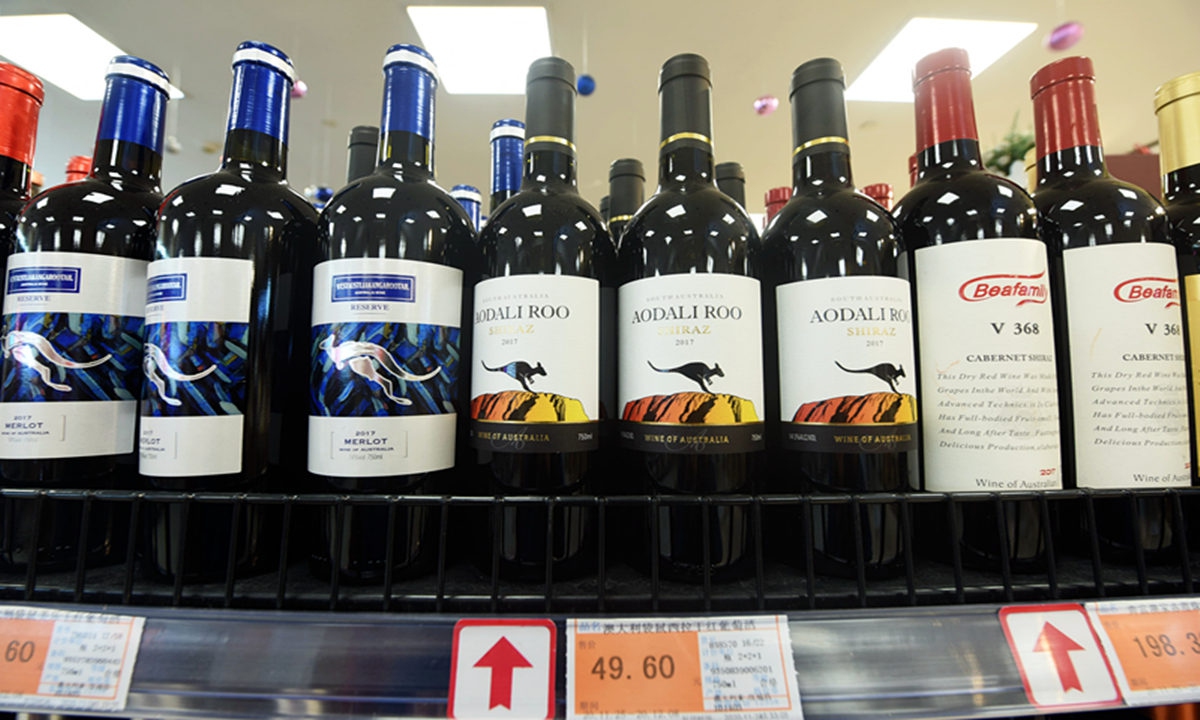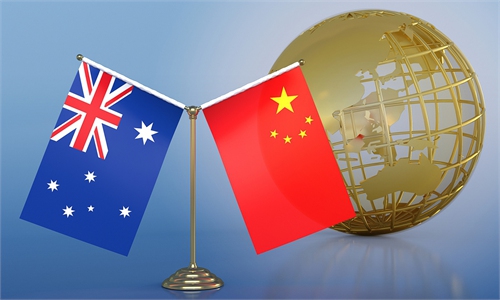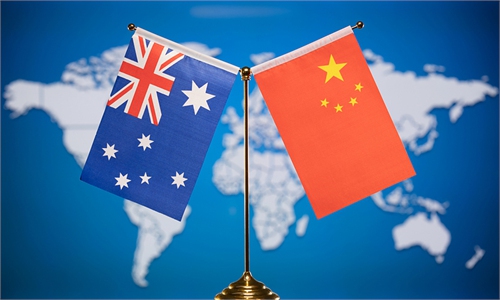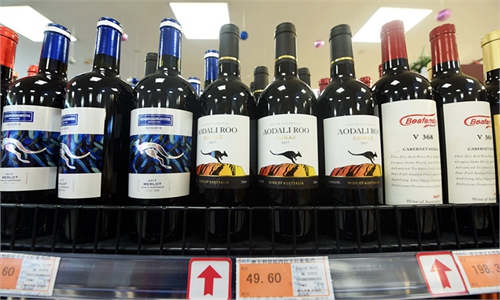
Bottles of Australian wine on the shelf of a supermarket in Hangzhou, East China's Zhejiang Province on November 27, 2020 Photo: VCG
China's Ministry of Commerce (MOFCOM) said on Thursday it will review anti-dumping and countervailing duties on wine from Australia, starting immediately, and will decide whether the punitive tariffs are necessary.
The review is a decision based on new developments in the market, which could result in standards changes with regard to dumping and subsidy practices, Chinese analysts said.
As economic and trade relations between China and Australia are the cornerstone of bilateral ties, further development in economic ties would improve the overall relationship and inject more positivity into the warming-up relations, they noted.
MOFCOM's review is also a meaningful step toward resolving China-Australia trade disputes. China and Australia have continued to work together to resolve trade friction, including resuming Australian barley exports to China.
According to a statement on the MOFCOM website, the review should end by November 30, 2024. Within 20 days of the announcement, any related parties could file a written comment and provide related evidence to the ministry.
On October 31, the Australian Grape & Wine filed an application to the MOFCOM for a review of the anti-dumping and countervailing measures imposed on Australian wine, the MOFCOM statement said. As the situation has changed a lot, it hopes that the MOFCOM will conduct a review on the necessity of continuing to implement the measures or move to remove the measures, according to a review conclusion.
In its follow-up, the MOFCOM will carry out a review and investigation in accordance with the law to fully protect the rights of all stakeholders, and will make an objective, fair and just ruling based on the review results of the claims and evidence of each party involved, MOFCOM spokesperson Shu Jueting said at a press briefing on Thursday.
China implemented five-year anti-dumping and countervailing tariffs on wine from Australia starting from March 28, 2021.
The MOFCOM announced in October that China and Australia had reached a consensus on resolving their disputes on wine and wind towers under the WTO framework.
"The decision is based on changes in the business environment. It is also in accordance with laws and regulations. Both are pure acts of business, rather than what certain media hyped as 'political gestures'," Chen Hong, director of the Australian Studies Center of East China Normal University, told the Global Times on Thursday.
Australian wine is likely to regain a market in China, and if the tariffs were lifted after the review, sales could rise during the upcoming New Year's Day and Spring Festival holidays, Chen said.
But industry insiders said that due to the three-year absence from the Chinese market, it may take time for Australian wines to regain their foothold.
Australian wine exports to China shrank to just A$8.1 million ($5.2 million) in the year to June from a peak of A$1.2 billion for the year to January 2020, Reuters reported.
In 2019, Australian wine accounted for 35.54 percent of China's import wine market, the largest share. But in 2022, it was no longer in the top 10, and it had lost those sales to wines from France, Chile and Italy, the Beijing Business Daily reported.
The review also follows the resumption of Australia's barley exports to China in October. Chen said this was another signal of bilateral relations moving into a new stage of development.
The bilateral relationship is "mature" and "energized by the complementary nature of our economies," Australian Prime Minister Anthony Albanese -the first Australian prime minister to visit China in seven years -said at the opening of the 6th China International Import Expo in Shanghai in October.
"Both sides should cherish this hard-won momentum and pour more efforts to reinvigorate bilateral relations," Chen noted.




